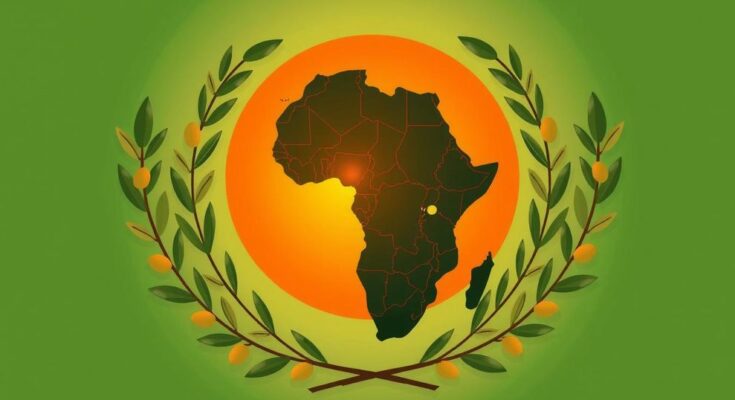Mahmoud Ali Youssouf of Djibouti has won the AU Commission chairmanship, defeating Raila Odinga of Kenya. He received 33 votes, securing the necessary majority. Youssouf succeeds Moussa Faki Mahamat and will lead for four years, facing challenges like youth employment and terrorism. Selma Malika of Algeria was elected Deputy Chairperson.
In a significant political development for the African Union (AU), Mahmoud Ali Youssouf of Djibouti has emerged victorious against Raila Odinga of Kenya in the election for the AU Commission chairmanship. The election was held in Addis Ababa, Ethiopia, where Mr. Youssouf, aged 59 and serving as Djibouti’s foreign minister since 2005, received 33 votes, successfully achieving the two-thirds majority required to secure the position.
Mr. Youssouf will take over the leadership of the AU for a term of four years, succeeding Moussa Faki Mahamat of Chad. His tenure will commence amidst a backdrop of considerable challenges facing the continent, including issues of youth employment, terrorism, and military coups prevalent in the Sahel region.
In addition, the elections also saw Selma Malika from Algeria elected as the Deputy Chairperson of the AU Commission. The AU congratulated her on social media, stating, “Congratulations to H.E. Selma Malika [Algeria] on her election as the incoming AUC Deputy Chairperson. Your victory is a reflection of the trust and confidence placed in your leadership, vision, and dedication to serving the people.”
Overall, Mr. Youssouf’s election signals a new chapter for the AU, as he prepares to address various pressing challenges faced by member states. Meanwhile, stakeholders in the agricultural sector in West Africa have also been urged to enhance agroecology financing strategies, reflecting the ongoing dialogues and initiatives aimed at improving regional cooperation and development.
The election of Mahmoud Ali Youssouf as the AU Commission chairperson marks a transitional moment in African governance. His leadership, alongside Selma Malika as deputy, represents a collective effort to face significant issues impacting the continent. Both leaders assume their roles amidst pressing challenges, emphasizing the need for collaboration in addressing Africa’s foremost political and socio-economic concerns.
Original Source: gazettengr.com




